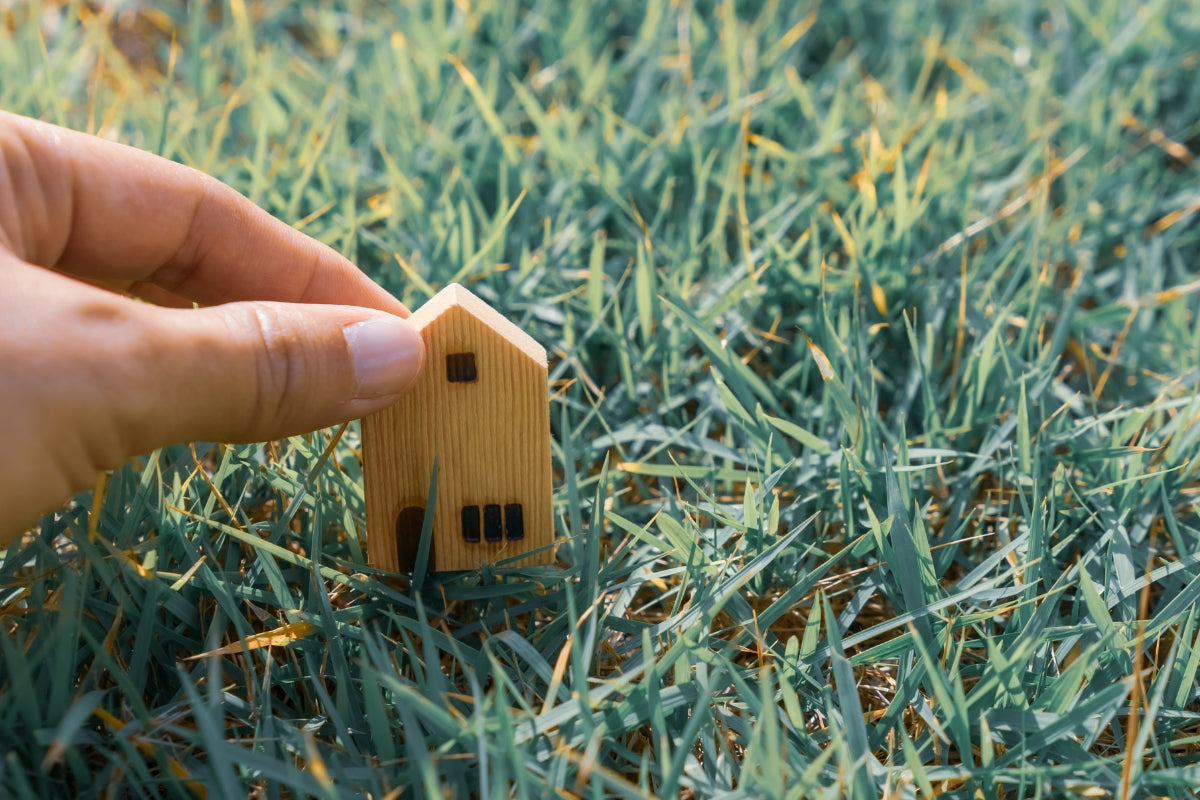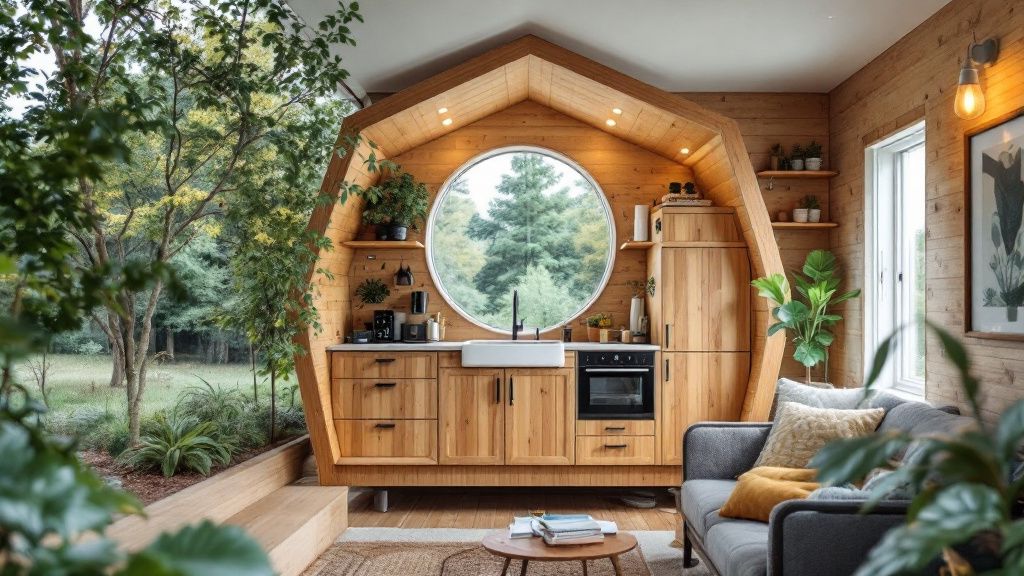Tiny homes typically have areas of between 100 and 400 square feet. Yet, they’re fully functioning homes with all the features of their larger, traditional counterparts. Part of their beauty lies in how designers use every square inch to maximize functionality and still offer all the comforts and mod cons of conventional homes.
Now, tiny homes have gained popularity through reality TV shows, the internet, and social media platforms, resulting in a rapidly growing real estate sector. Real estate professionals are fast seeing why investing in tiny homes may be a smart choice for individuals seeking financial and lifestyle advantages. If you’re considering investing in this sector but are unsure, this article might help you decide. Here are six reasons why investing in tiny homes can be beneficial.
Tiny Homes Are Affordable And Cost-Efficient
One of the most prominent benefits of investing in tiny homes is affordability. These miniature residences typically come with a lower price tag than conventional homes, ranging between $10,000 and $180,000.
The reduced construction costs, minimal land requirements, and smaller ecological footprint contribute to the overall affordability of these compact houses. This opens up new possibilities for potential investors, making homeownership a possibility without the burden of a hefty mortgage. This financial advantage appeals to first-time homebuyers, retirees scaling down, and those looking for an investment opportunity with lower overall costs.
The cost-efficiency extends beyond the initial purchase or construction price. Designers create tiny homes with simplicity in mind, and real estate professionals highlight the lower maintenance costs as a significant advantage for investors. With fewer square feet to manage, maintenance tasks such as painting, roofing, and landscaping become more manageable and cost-effective.
The reduced maintenance requirements save homeowners money and free up valuable time and effort. This factor makes tiny homes an attractive option for those seeking a low-maintenance property or investors looking to minimize ongoing operational expenses.
Due to their affordability, 70% of American tiny homeowners live mortgage-free, enabling 55% to accumulate more savings than the average U.S. citizen.
While tiny homes often offer a more manageable cost structure, there are still instances where financing might be needed. Exploring the different options available for getting a home loan can help in procuring the most favorable terms and conditions appropriate to your investment in tiny homes.
The Environmental Impact Is Minimal
Sustainability is the watchword in most industries these days, and tiny homes are an environmentally conscious choice for homeowners and investors. Realtors highlight the reduced impact of tiny homes, emphasizing their smaller carbon footprint, decreased energy consumption, and efficient use of resources during construction.
For environmentally-conscious investors, these diminutive dwellings provide an opportunity to aid a greener future while enjoying the benefits of a compact and comfortable living space. The ever-increasing support for sustainability drives the demand for environmentally friendly housing. Tiny homes fit the mold, making it a fast-developing real estate sector.
Tiny Homes Bring Versatility And Flexibility
Realtors emphasize the versatility and flexibility that tiny homes offer regarding location and design. One of the most popular types of tiny houses is the “Tiny Home On Wheels" (THOW), built on top of a trailer.
For people who love to travel, they’re the perfect solution as they have all the facilities and conveniences of a traditional home. They also have the advantage of making your home wherever next takes your fancy. Alternatively, they make stunning vacation homes.
People also use tiny homes as Accessory Dwelling Units (ADUs). An ADU refers to a smaller dwelling constructed on the same property as the main house, which may function as guest accommodation or to generate a rental income.
Owners can construct their pint-sized residences on small plots of land, in urban areas, or even as part of a larger community of tiny homes. The flexibility in location opens up possibilities for investors to explore diverse markets and cater to different demographics.
In addition, tiny homes boast customizable designs, catering to individual tastes and lifestyles. Realtors point out that this design flexibility not only enhances the personalization of living spaces but also increases market appeal, as many owners get immense satisfaction from designing their miniature living spaces. Investors can tap into this versatility to target specific niche markets and cater to a wide range of potential buyers.
.jpeg)
Minimalism Reigns In Tiny Homes
The minimalist lifestyle is gaining momentum as many people begin to see the value of decluttering and the freedom that comes with having fewer possessions and encumbrances. The modern appeal of living intentionally and valuing people and nature above things draws a new clientele to the tiny home movement.
High Demand In Emerging Markets
As the tiny home movement gains ground, real estate professionals observe an increased demand for compact living spaces in emerging markets. Realtors highlight the appeal of tiny homes to a broad spectrum of buyers, including millennials looking for affordable housing, retirees planning to downsize, and individuals seeking minimalist and sustainable living.
The high demand also makes it easier for realtors to buy real estate leads segmented according to this market and target buyers more effectively. In turn, this makes it simpler for investors to find exactly what they’re looking for.
Tiny Homes Make Good Short-Term Rental Options
With the popularity of vacation rentals and the rise of platforms like Airbnb, tiny homes offer a unique and charming accommodation option for travelers.
Investors can leverage the compact nature of tiny homes to establish rental properties in desirable locations, appealing to tourists and travelers looking for a unique lodging experience. The flexibility in usage enhances the potential for tiny home investors, making them an appealing choice for diversifying real estate portfolios.
Do Tiny Homes Appreciate In Value?
Despite the many benefits of tiny homes, potential homeowners and investors must ask whether they increase in value over time as traditional homes do. The answer is yes. These miniature houses can appreciate over time, depending on their location, the market conditions, and whether owners have made any home improvements.
The Bottom Line
These insights highlight a compelling case for investing in tiny homes, showcasing a range of benefits that extend beyond mere financial considerations. Affordability, environmental sustainability, versatility, enjoying a minimalist lifestyle, market demand, and the potential for short-term rentals collectively contribute to the allure of tiny homes for investors.
As the real estate landscape evolves, these insights provide valuable guidance for individuals searching for innovative and forward-thinking investment opportunities in the housing market.






Share: